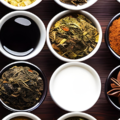The Top Wonderful Anti-Inflammatory Foods for a Balanced Diet

Disclaimer: This article is for informational purposes only and does notconstitute medical advice. Always consult a healthcare professional before making changes to your diet or lifestyle.
Why Inflammation Matters for Your Health
Chronic inflammation has been linked to conditions like heart disease, diabetes, arthritis, and even certain cancers. While inflammation is a natural and essential process for healing, long-term inflammation can negatively affect your health over time.
Improving your diet with anti-inflammatory foods can be a powerful way to support your body and reduce health risks.
Understanding Inflammation: The Body’s Defense Mechanism
Inflammation acts as a protective response to injury or infection. However, when inflammation becomes chronic, it may begin to damage healthy tissues and contribute to long-term disease.
Types of Inflammation:
- Acute Inflammation – Short-term, immediate response to injury or infection.
- Chronic Inflammation – Long-lasting and can occur even without a clear cause.
Health Conditions Linked to Chronic Inflammation
- Heart disease
- Type 2 diabetes
- Certain types of cancer
- Autoimmune disorders
- Inflammatory bowel disease (IBD)
*Sources: Harvard Health, *Mayo Clinic
Top Anti-Inflammatory Foods to Include in Your Diet
1. Berries
Rich in antioxidants and polyphenols, berries like blueberries, strawberries, and raspberries help neutralize harmful free radicals in the body.
- How to enjoy: Blend into smoothies, top on oatmeal, or eat as a snack.
- Evidence: Studies suggest berries may reduce inflammatory markers such as nitric oxide and IL-1β. PubMed Study
2. Fatty Fish
Salmon, sardines, and mackerel contain omega-3 fatty acids (EPA and DHA) that can help lower inflammation.
- Recommended intake: 2–3 servings per week.
- Tip: Grilled salmon with roasted vegetables makes a perfect anti-inflammatory meal.
3. Cruciferous Vegetables
Vegetables like broccoli, cauliflower, kale, and Brussels sprouts contain sulforaphane, which may help suppress inflammation.
- Try this: Roast broccoli with olive oil and garlic for a flavorful side.
4. Nuts and Seeds
Nuts like walnuts and almonds, and seeds like chia and flaxseeds, are packed with healthy fats, fiber, and antioxidants.
- Quick snack: A handful of nuts or chia pudding with fresh berries.
5. Whole Grains
Whole grains such as quinoa, brown rice, oats, and whole wheat are rich in fiber, which helps maintain gut health and reduce systemic inflammation.
- Example: A bowl of oatmeal with nuts and berries makes a nutritious breakfast.
6. Herbs and Spices
Certain spices are more than just flavor enhancers:
- Turmeric (contains curcumin)
- Ginger
- Garlic
- Cinnamon
- Tip: Combine turmeric with black pepper to improve curcumin absorption.
7. Extra Virgin Olive Oil
A staple in the Mediterranean diet, this oil contains monounsaturated fats and polyphenols, which may help reduce inflammation.
- Use it in: Salad dressings, cooking, or drizzled over roasted vegetables.
Foods to Limit or Avoid
Reducing pro-inflammatory foods is just as important as adding healthy ones. Limit:
- Processed meats (e.g., bacon, sausages)
- Refined carbohydrates (white bread, pastries)
- Sugary beverages (sodas, sweetened juices)
- Trans fats (found in some margarines and fast food)
- Highly refined vegetable oils (e.g., soybean or corn oil in excess)
Balanced Nutrition: Building an Anti-Inflammatory Plate
Aim for balance:
- 40–50% complex carbohydrates (vegetables, whole grains)
- 30% healthy fats (avocados, olive oil, nuts)
- 20–30% lean protein (fish, legumes, tofu)
Following principles from the Mediterranean or DASH diets can be helpful.
Sample Anti-Inflammatory Meal Plan (2 Days)
Day 1
- Breakfast: Oatmeal with berries and walnuts
- Lunch: Mixed greens salad with chickpeas, avocado, and olive oil dressing
- Dinner: Grilled salmon with quinoa and steamed broccoli
Day 2
- Breakfast: Spinach-berry smoothie with flaxseeds
- Lunch: Lentil soup with whole-grain bread
- Dinner: Stir-fry with tofu, mixed vegetables, and brown rice
Beyond Food: Lifestyle Tips
- Stay Hydrated: Aim for 6–8 cups of water daily.
- Exercise Regularly: Moderate activity helps reduce inflammation.
- Get Enough Sleep: 7–9 hours supports immune and hormonal balance.
- Reduce Stress: Chronic stress can exacerbate inflammation.
Conclusion: Small Choices, Big Impact
Adopting an anti-inflammatory diet doesn’t mean overhauling your life overnight. Start small:
- Add a new anti-inflammatory food each week.
- Experiment with healthy recipes.
- Share your journey with a friend or loved one.
By making mindful food choices, you’re supporting not just your physical health, but your energy, mood, and long-term wellness.
RELATED POSTS
Dehydration The Silent Killer That’s Costing You Your Health
Don’t let dehydration steal your health. Get tips for better energy, sharper focus, & disease prevention. Consult a doctor for serious symptoms.
Sustainable Eating: How To Make A Positive Impact On The Planet
Sustainable eating. It’s all about making food choices that are not only good for you, but also good for the planet.
The Best Whole Foods Vegan Desserts For Health-Conscious Individuals
Discover delicious and healthy whole foods vegan desserts made from plant-based, unrefined ingredients. Try easy recipes, smart swaps, and top store-bought options for guilt-free indulgence.
FOLLOW DISCOVERY BLOGGER









0 Comments